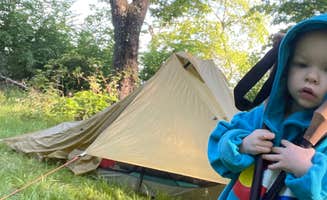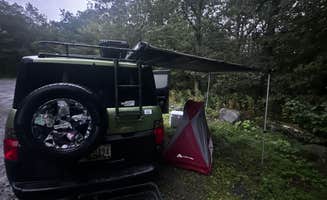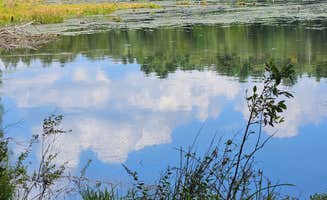Best Dispersed Camping near Long Pond, PA
The Pocono Mountains region surrounding Long Pond, Pennsylvania features primarily dispersed camping options with limited developed facilities. Backpackers and tent campers will find designated sites along the Appalachian Trail approximately 15 miles southeast of Long Pond, while the Thunder Swamp Trailhead offers more primitive camping opportunities closer to town. Nearby Hickok Brook in New York State provides lakeside tent sites for those willing to travel slightly farther. These areas generally cater to self-sufficient campers seeking minimal amenities rather than those requiring full hookups or developed campgrounds.
Permit requirements vary significantly between camping areas, with some requiring advance registration through state or federal agencies. Roads accessing many of these sites present challenges, particularly at Hickok Brook where visitors report "very rough roads with huge potholes" requiring "good clearance" for vehicles. Water availability is a consistent concern throughout the region. As one Appalachian Trail camper noted, "There's no water nearby... Stock up on water at Dunnfield Creek natural area or wait until Sunfish Pond." Most sites lack facilities such as toilets, trash collection, or potable water, making proper preparation essential for overnight stays.
Campers consistently mention limited capacity as a defining characteristic of the area's camping options. "There are only 3 spots where we are," reports one Hickok Brook visitor, while an Appalachian Trail camper described sites as "a little on the small and sloped side for tent camping." Despite size limitations, the camping experience receives positive reviews for its natural setting. Hammock camping proves popular due to terrain challenges and abundant trees. Bear boxes are provided at some Appalachian Trail sites, indicating wildlife considerations. Fire restrictions apply in many locations, with several areas prohibiting ground fires entirely. Cell service remains unreliable throughout much of the region, requiring campers to plan accordingly for emergency communications.




